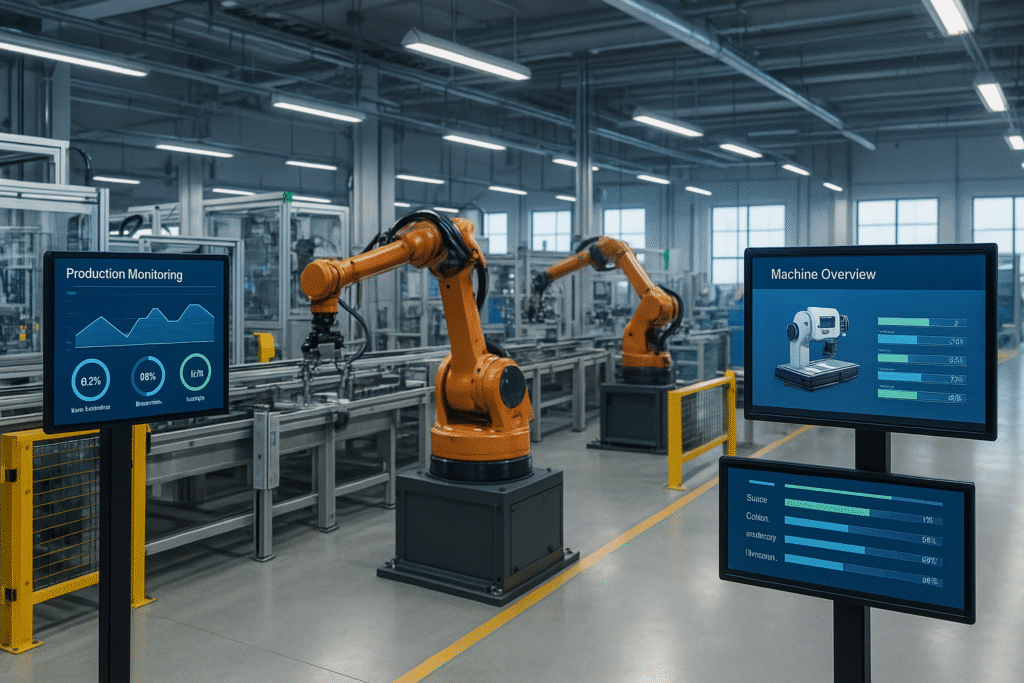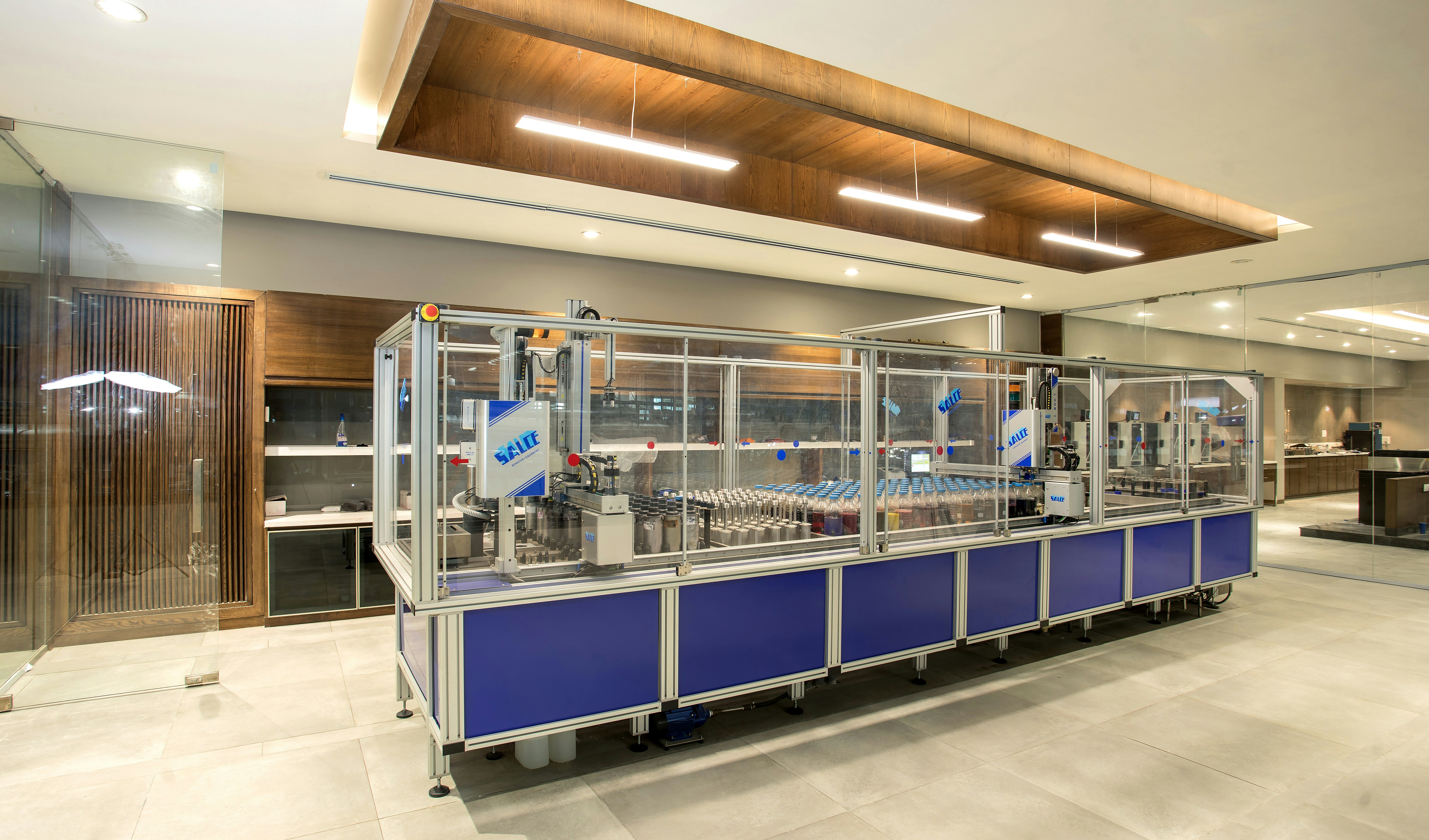Introduction
Industrial Engineering in Smart Manufacturing bridges classic industrial engineering with cutting-edge technologies to create the factories of tomorrow. Whether you’re a student entering the field, a manager implementing digital transformation, or a professional seeking upskilling, this article offers valuable insights, real-world case studies, and clear guidance on every aspect of smart manufacturing.
What is Industrial Engineering in Smart Manufacturing?
Industrial engineering in smart manufacturing integrates:
- Traditional IE methods: process optimization, systems thinking, productivity analysis
- Smart technologies: IoT, AI, robotics, big data, and digital twins
The result is a data-driven, self-optimizing production environment. Industrial engineers take high-tech tools and turn them into operational benefits such as increased efficiency, reduced waste, and improved flexibility.
Key Trends Shaping This Field
1. Industry 4.0 & Digital Transformation
Industry 4.0 encompasses IoT, big data, cyber-physical systems, and more. Industrial engineers lead the charge in implementing these technologies into real-world operations.
Example: At Bosch’s Nexeed Smart Factory, IoT-driven systems cut downtime by ~25% and optimized energy usage, reducing power consumption by 40% .
2. Predictive & Smart Maintenance
Predictive maintenance forecasts equipment failure using real-time and historical data, reducing unplanned downtime by up to 50%, and cutting costs by 10–40% ProValet. Industries like Siemens and Bosch report up to 30% maintenance cost reductions Predictive Maintenance Case Studies: How Companies Are Saving Millions with AI-Powered Solutions
3. Human–Machine Collaboration
Cobots work alongside people to handle repetitive tasks, while humans focus on decision-making. Industrial engineers optimize these workflows, ensuring safe and productive interactions.
4. Data-Driven Decision-Making
Industrial engineers analyze operational data to support decisions such as demand forecasting, inventory control, and real-time maintenance planning. This approach has led to a 25% efficiency boost in firms .
5. Digital Twins
Digital twins simulate production processes or entire facilities. Bosch, for example, uses these virtual replicas to cut planning time in half. Nexeed: Welcome to the Smart Factory | Bosch Global
Why Industrial Engineering Matters in Smart Manufacturing
Industrial engineers:
- Connect smart technology with factory operations for real ROI
- Simultaneously optimize quality, cost, and delivery
- Enable sustainable, environmentally friendly manufacturing
- Boost workforce safety and adaptability
They are the indispensable bridge between innovation and execution.
Roles & Responsibilities
- Process Optimization Engineer
- Data Analyst / Data Scientist
- Automation Engineer
- Sustainability Engineer
- Digital Twin Specialist
These professionals apply engineering principles and digital skills to smart manufacturing challenges.
Essential Skills for the Future
- Data analytics (Python, R, Power BI)
- IoT systems knowledge
- Machine learning basics
- Experience with digital twins
- Cybersecurity awareness
- Leadership and change management
Benefits of Smart Manufacturing
- Lower maintenance costs via predictive systems
- Greater production flexibility and agility
- Improved product quality through continuous monitoring
- Eco-friendly operations using real-time efficiency tools
- Shorter time-to-market with dynamic workflows
- Empowered workforce with reduced manual strain
Challenges to Address
- High initial investment
- Skills gap in digital domains
- Employee resistance to change
- Integration of legacy systems
- Data security concerns
Industrial engineers play a critical role in overcoming these obstacles.
How to Begin Your Career
- Earn a degree in Industrial Engineering or a related field
- Gain proficiency in analytics, IoT, and AI tools
- Complete internships in manufacturing or smart-factory environments
- Develop soft skills: communication, teamwork, and adaptability
- Stay updated—join [IISE – Institute of Industrial and Systems Engineers], or explore guides like [Lean Manufacturing Principles] and [Data Analytics in Manufacturing] on aiiem.org
Smart Factory Case Studies
Bosch Nexeed
- Reduced downtime by 25%
- Cut energy use by 40% via digital solutions. Industrial internet of things – Wikipedia
Siemens & Predictive Maintenance
- Reported 30% lower downtime and costs
These success stories demonstrate measurable and impactful results from industrial engineering.
Conclusion
Industrial Engineering in Smart Manufacturing blends classic engineering rigor with digital innovation. It empowers factories to be smarter, greener, and more resilient. Whether you’re a student exploring career options, a professional updating your skillset, or a manager navigating digital transformation, smart manufacturing and industrial engineering offer exciting opportunities.
The future of manufacturing is here—and industrial engineers are shaping it. Start learning, experimenting, and driving the transformation today.
👉 Enjoyed this guide? Share it, bookmark it, and explore more on aiiem.org.


